I realised only the other day, that I first started travelling around the world almost 20 years ago. Two things then came to mind. Firstly, where did the time go? (Answer – Time flies when you are having fun). Secondly, the way we travel has changed a lot over 20 years.
Obviously, this was too good a subject not to write about. So, here are 20 ways travel changed in 20 years.

How has making travel arrangements changed in the last 20 years? The travel industry has undergone a remarkable transformation, with technology playing a pivotal role in shaping the way we plan and book our trips.
Two decades ago, traveling involved lengthy phone calls to make reservations or visiting travel agencies to purchase tickets. Today, with just a few clicks on a smartphone or computer, we can easily compare prices, read reviews, and secure flights, hotels, rental cars, and activities.
Travel apps and websites offer real-time updates on flight statuses, weather conditions, and traffic, providing travelers with peace of mind and flexibility. Additionally, the rise of budget airlines and the sharing economy have made traveling more accessible and affordable for millions of people around the world.
20 Years Of Travel
Wow, is it really 20 years ago I set off on my first trip around the world? That RTW trip gave me a taste for travel I never lost though.
I spent 10 months driving around Australia, followed by time in New Zealand, Fiji, and the USA.
Since that first trip, I have travelled all over the world by plane, train, and automobile. I've sailed from Malta to Sicily, and I've also clocked up over 40,000 kms bicycle touring on various long distance cycling trips.
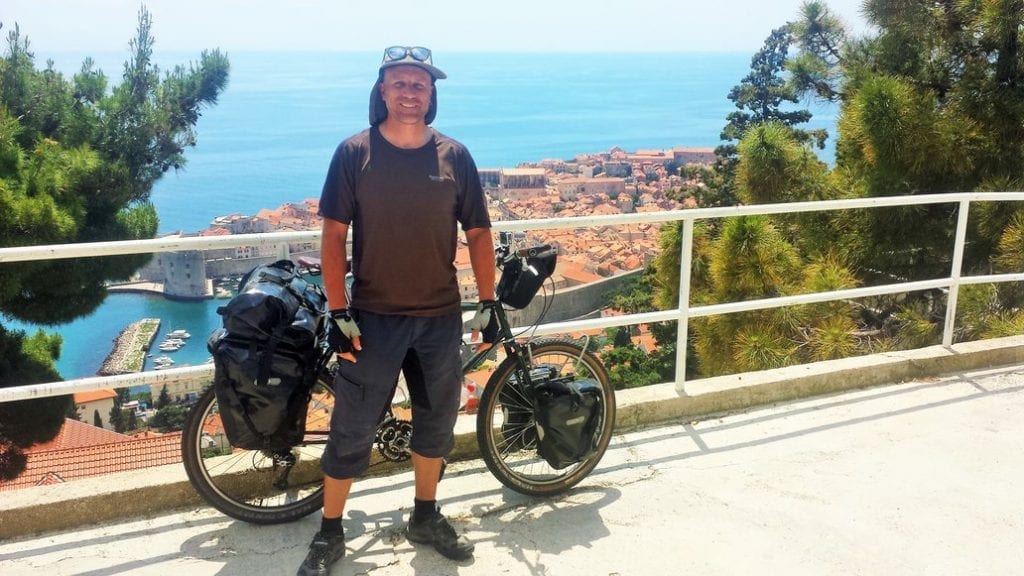
Many aspects of travel have changed over that time. Do you remember travellers cheques? What about Poste Restante? Here are 20 ways travel changed in 20 years.
20 Ways Travel Changed
It would be very easy to write about 20 ways travel changed in the last 20 years by simply comparing ‘then' and ‘now'. This doesn't tell the whole story though.
The truth is that during that time, different things have popped up quickly and then faded away. Blink and you might have missed them. Remember MiniDiscs anyone?
‘Budget Airlines' and how they have changed travel are another example. Whilst it is certainly true they did change the way we travel, and are generally a lot cheaper than national carriers, the golden age of super-cheap flights is long behind us.
I remember genuinely getting plane tickets to other countries from the UK for 10 pounds or less on a regular basis. This was a real revolution, opening up the possibility of cheap travel to other countries to people in low paying jobs. (Me!).
When was the last time you honestly saw a flight that cheap though? I haven't seen one in years now. By the way, I've also made a brief video, which you can check out below.
Anyhow, enough of all that. Here are 20 ways travel changed in 20 years.
#1 Researching Where To Go
Let's start by thinking about how we research where to go nowadays. Do you find yourself visiting your local library, and taking out a bunch of books on the destinations you want to visit? Do you pay a visit to your local travel agent, and take away whatever brochures they have? The answer, is probably not.
If I asked this question 5 years ago, you might have replied that you researched where to go online from your computer. Today, you are still using the internet, but most likely from your mobile phone.
The sources we use to research where to go have also changed. 20 years ago, you might have placed your faith in ‘authority', such as books from the Lonely Planet, or Rough Guides.
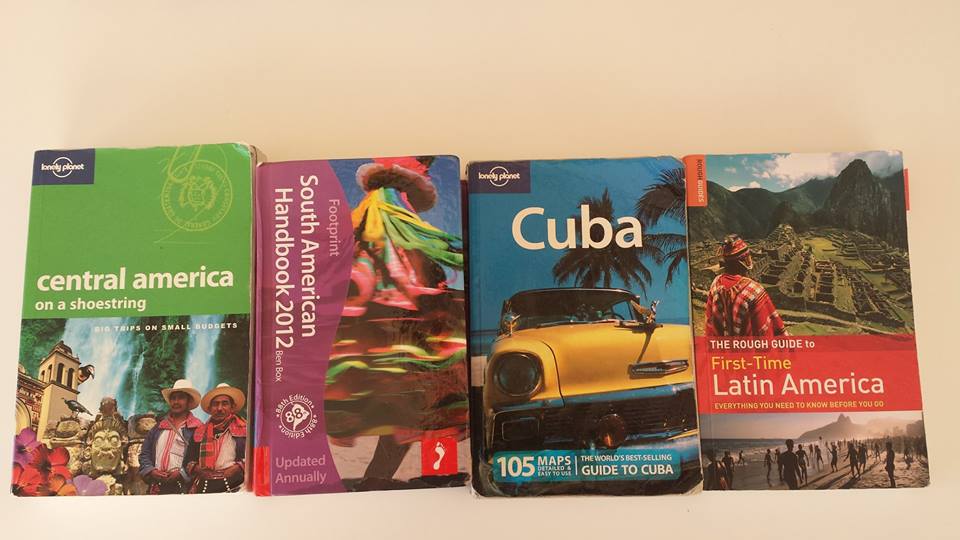
Today, people seek out more ‘real' experiences by people who have already travelled to the destination. I've heard that blogs like this one are a great source of inspiration and advice!! Personally, I also do a lot of destination research on YouTube as well.
Related: Using technology to connect with local cultures in the digital age
#2 Booking The Trip
So, we all know today that we have probably researched a trip online, and that we also book it online. Even if you are booking through a travel agency for a package holiday, you are quite likely to make the booking online.
20 years ago though, things were very different. You would almost always make a booking for flights through a travel agency. Going directly to the airlines themselves often did not get you cheaper prices, and in some cases may not have even been possible.
Booking hotels was also very different 20 years ago. You might have booked one through your travel agency along with your flights if planning a long trip.
If the trip was in your own country, and you had the number of a hotel, you might have called them to reserve a room. If you were backpacking, you might have consulted your trusty Lonely Planet guide, and contacted their recommendations.
Today, if you need to book a hotel for a trip, you can choose from any number of websites in order to make the reservation online.
Booking.com and Tripadvisor are the most popular ones, but there are also many more. These come with customer reviews, so you know what to expect in advance.
Related: International Packing Checklist
#3 Budget Airlines
I've already touched upon the subject of budget airlines. What is a budget airline though? For anyone reading this in the UK, the two airlines that immediately come to mind are Ryanair and Easyjet.
There are of course dozens more scattered all over the world. They offer a ‘no-frills' approach to travel, which is most suitable for people wanting to visit a city for just a few days.
As long as you can pack everything you need in your hand luggage, you avoid paying extra charges for luggage.

For me though, budget airlines introduced something far more important than simply low cost air travel. They opened peoples minds to being able to travel to another European city for a weekend break.
All of a sudden, travel in Europe wasn't just restricted to people who were well off. When I was back in the UK between my ‘long' trips around the world and saving for the next, a few friends and myself used to fly out on weekends to all sorts places.
Gothenburg, Copenhagen, Dublin, Berlin, Klagenfurt, and many others were all reached for less than £30 return. Great times!
#4 Travel Guidebooks
Back in the day, the Lonely Planet guidebook to whatever country you were travelling through was nicknamed ‘The Bible'. It was a wealth of pre-researched knowledge, that gave you something of an inside track on then little visited countries such as Cambodia.
It would list the highlights of things to see and do in an area, and also mention some accommodation suitable for different budgets.
The maps to each place were the real bonus though. They were well-designed and featured city centres and places of interest which made getting around very easy.

Fast forward 20 years, and there is a problem with guidebooks. A problem which companies like the Lonely Planet are trying to deal with, but having limited success.
Firstly, the information is out of date by the time the book is published. This wasn't such an issue 20 years ago, as things seemed to change at a slower pace.
Nowadays though, cafes and restaurants spring up, become popular, and die off all within 6 months. Safe areas of town become dangerous, hotels open and close, and prices change depending on what has happened in the currency exchanges.
A book can't cope with that. An app or online resource can though.
Apps vs Guidebooks
I won't say that apps have completely replaced guidebooks yet. The reason for this, is that a ‘killer travel app' which is a combination of guidebook, interactive map, social platform, and note taking device isn't quite there yet.
Give it a couple of years though, and I am sure they will. (By the way, if anyone from the Lonely Planet, Rough Guides, or Tripadvisor wants to get in touch with me about such projects, I would love to be a consultant!).
What we do have though, are several different apps such as Google Maps, Tripadvisor City Guides, and dozens of others that can all be accessed from a smartphone.
This is quick, convenient, and uses regularly updated information. Presently, I think apps are great as guides when actually in a country and travelling. For research beforehand though, maybe a guidebook such as the Lonely Planet still has a place. But a book, made out of paper?
Why do I want to carry a book around with me? Why do I want a paper book at all, which is the product of cutting down a tree? I can keep hundreds of books on a Kindle. Which brings me on to #5 of the 20 ways travel changed in 20 years.
#5 Books in General
Amazon's Kindle has changed the book publishing and retailing game. (I assume you know what a Kindle is!).
In terms of travel, this is a great bonus. I can load up my Kindle with as many books as I like, and it doesn't increase the weight I carry. Even taking 5 physical books on an around the world trip can make you think twice!
With a Kindle, I can take hundreds. And I do. I bought an old style Kindle 3G with Keyboard back in 2012, and it's still going strong. I very much doubt I will be able to read all the books I have ‘acquired' on there in my lifetime!

Oh, and you don't actually need to buy a Kindle either if you have a smartphone. You can read your books just as easily on an Android or Apple phone, albeit the screen isn't as good for your eyes.
#6 Taking Photos
The way we take photos has almost changed 20 ways in 20 years by itself! Thinking back to my first trip, I'm not sure exactly what camera I took, but I know it was a film camera (obviously). We may have even taken a couple of disposable cameras as well.
The problem with old ‘film' style cameras, is that you became paranoid on a long trip that you might lose the photos, or that they might not turn out.
One of the other things that happened, is that you simply did not take so many photos, because film and getting them developed was so expensive.
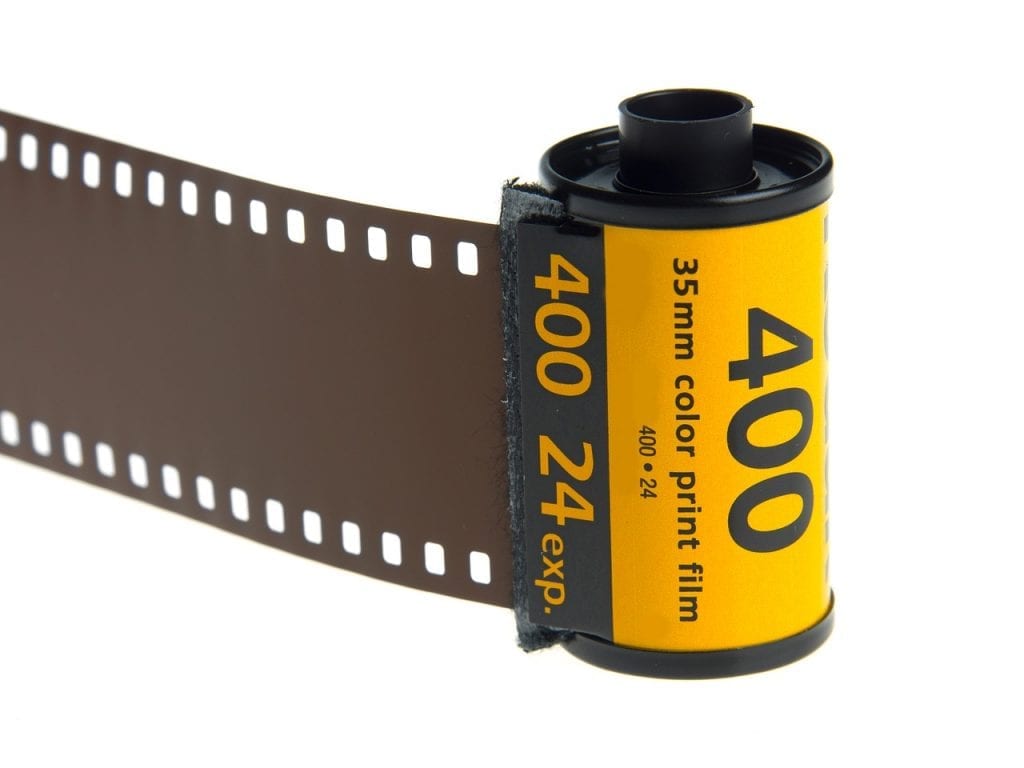
What we used to do, was get the films developed in the country we were in, and then post back the photos without the negatives. When the photos turned up at their destination (quite a few weeks later!), we would then send the negatives on with the next parcel to be posted back.
As you can tell, film + developing + postage = extra expenses. The rise of digital technology changed all that.
The Rise of Digital Cameras
I didn't get in on the very first wave of digital cameras, but I think I was using one in 2006 when I cycled from England to South Africa. Affordable quality digital cameras and storage discs were still being developed, and I would have had a very lower end one.
SD Card storage was also a bit of a joke compared to now! Actually, I just looked through some old SD cards, and there's a 128MB card. Seriously!
Later on, as technology developed, good DSLR cameras became more readily available. Now, film cameras are all but dead apart from those used by a few die-hard purists.
By the way, I've never had a DSLR camera myself. Instead, I have a Canon Powershot SX510 HS which suits my needs. The story of taking photos doesn't end there though, because there is one more chapter to add…
Smartphone Cameras
Although we take it for granted now, good smartphone cameras have really only been with us for 5 years. Even in this short space of time, they have revolutionised travel photography.
Now, almost anyone can take a good quality picture and share their experiences on Facebook, Instagram, Pinterest and a dozen other social media sites.
Of course, this has given rise to the selfie, and one particular version of it I really hate, the ‘duck face' selfie, but the world isn't perfect!
Here's a question for you before I leave the subject of travel photography alone. When was the last time you printed out any photographs? Answers below please!
#7 Music
Wow, where do I even start here?! When I started travelling 20 years ago, CD's had just about replaced cassette tapes and vinyl as the preferred medium for listening to music.
They were too expensive for me at the time though, so I remember taking a couple of cassettes of music with me. Good choice too, as the car we bought had a cassette deck!

Sometime during that first trip though, we bought a portable CD-player to hook up to the car, and also bought a couple of cd's. I remember them distinctly. The Fat of the Land by The Prodigy, and OK Computer by Radiohead. Both awesome albums by the way!
Taking a whole pile of CD's as you travel wasn't exactly practical though.
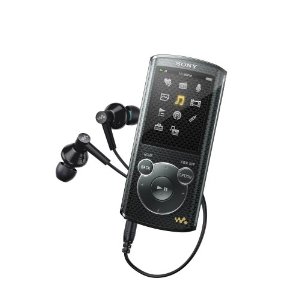
Since then, we have had the mini-cd (massive fail), and then MP3 players. The most popular one is of course the iPod, although smartphones are perhaps an even more popular means of storing and listening to music.
Now, you can take your entire music collection with you as you travel. Developments in technology play a big part in the 20 ways travel changed in the last 20 years.
Related: Pros and Cons of Travel by Car
#8 Finding Somewhere To Eat
Once upon a time, we had to consult a guidebook or ask a local where the best place to eat was. Whilst effective, you didn't really know what to expect until you were actually there.
We can still do that today of course, but now, we can also use mobile phone apps such as Foursquare. These will point us to the right direction of places to eat. They will even provide a list of places to eat which are closest to where you stand!
You can also consult sites such as Tripadvisor, where people have left restaurant reviews. Finding somewhere good to eat has never been easier!
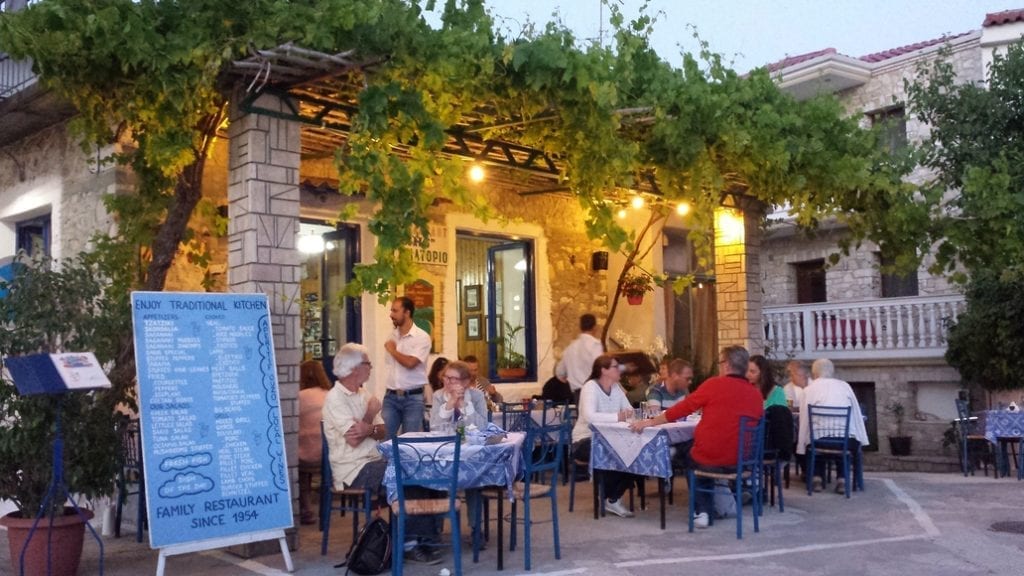
#9 Ordering A Taxi
Do you remember the days when you could simply flag down a taxi? Do you then remember wondering if you would get ‘ripped off' by the taxi driver, or there would be some mysterious addition to the fare?
Whilst companies such as Uber receive mixed reviews mainly for the way in which they work with their drivers, there is no denying it is a great thing for travellers.
You know in advance what a fare will be, and have a driver that is registered. Do you use Uber or similar companies when you travel?
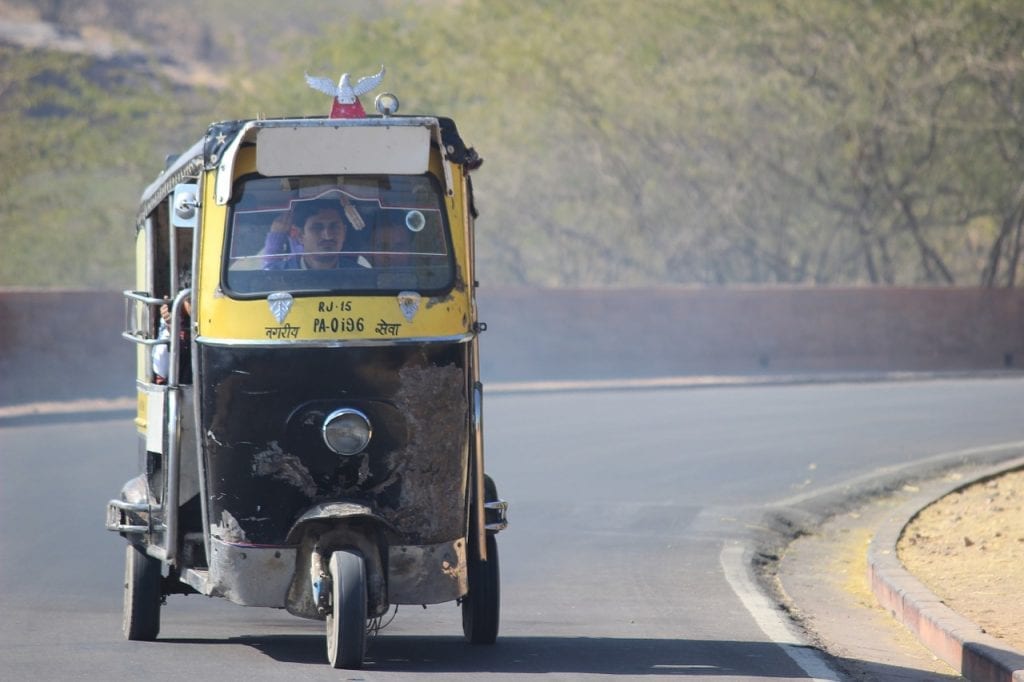
#10 Communicating With The Locals
Visiting a foreign country, and not understanding a word of what anyone is saying is half the fun of travelling! Pointing at items on a menu, and hoping you haven't ordered four different soups, or conversations held entirely with hand gestures is part of the adventure.
In the past, we might have travelled with a small pocket dictionary, or used the most common phrases from a guidebook. Now, we can use a whole range of apps on our smartphones to help us. Google translate is just one example.
The element of fun an adventure is still there though, because as anyone who has used these apps knows, they can produce hilarious results!

#11 Working On The Road
I think work and long term travel has always gone hand in hand. Picking up temporary jobs for a few weeks and then moving on is one way of travelling.
Staying for longer periods of time in one place before travelling to the next is another. In some ways, this combination of work and travel hasn't changed. What has changed though, is the possibility of working online.
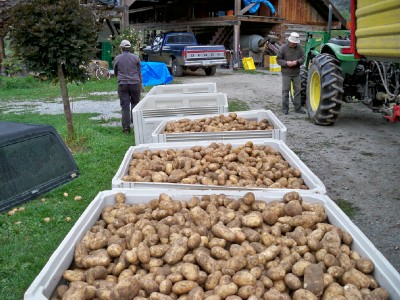
Working online from anywhere in the world, or being a digital nomad is a concept that has been around for a while. I inadvertently stumbled on it when I ran out of money cycling from Alaska to Argentina.
I found that I could make a little money online writing blog content for other people. Since then, I have taken it a step further, and now work completely online.
This has meant that moving to Greece has been relatively easy, and that of course I can work from anywhere in the world. Of all the 20 ways travel changed in 20 years, this one is the most revolutionary.
It basically opens up long term travel to almost anyone. All you have to do is find what skills or services you can offer online, and then connect with a client base. I will be working on a guide to funding long term travel some time in the future, which will cover this in more detail.
#12 Hitchhiking
Am I the only person who has noticed that the art of hitchhiking has all but died out over the last 20 years? In all fairness, even back in 1996 it was long past its heyday of the 70's and 80's, but now hitchhikers are nowhere to be seen.
Why is that? I used to hitchhike around the UK in my early 20's, which was a fun experience, but I just don't see people doing it any more. Such a shame.
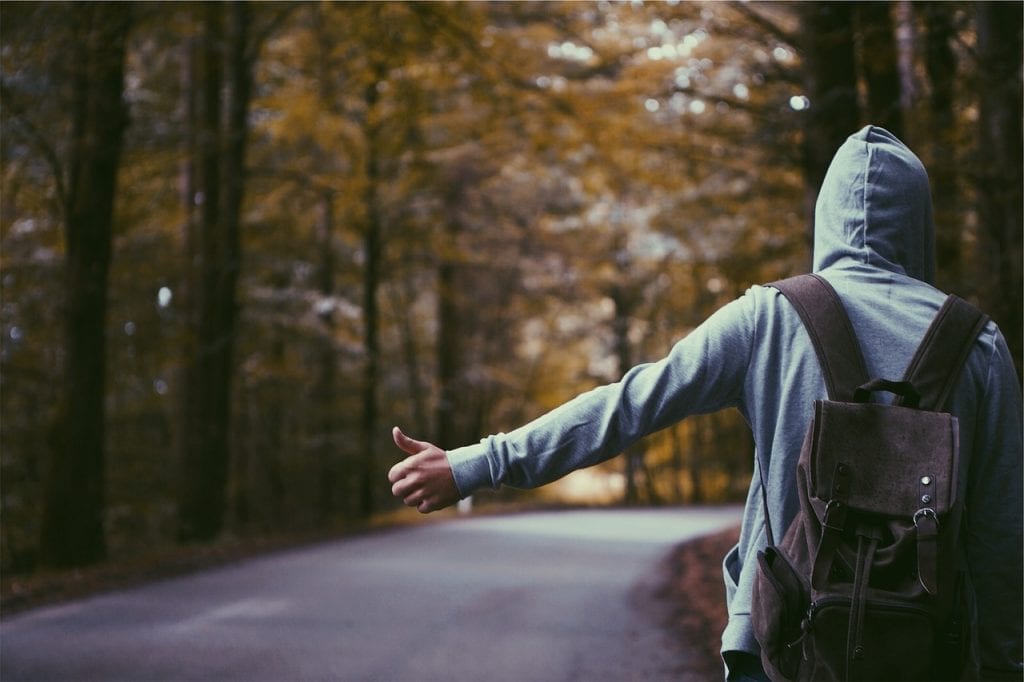
#13 Smoking on Planes
Sometimes, I question whether all change is good. Is it really good that physical items such as books, music, and film are replaced with digital technology? Should we really put thousands of years of acquired human knowledge in the ‘cloud'?
When it comes to smoking on planes though, it's a no-brainer.
This is without doubt one of the best of the 20 ways travel changed in 20 years! No more sitting on a long-haul flight sucking in fumes from a chain-smoking passenger next to you. No more stinky clothes. Bliss!
Now, if only Greece could catch up with the rest of Europe and ban smoking in bars and restaurants as well….
#14 Money
Money makes the world go around, or so they say. In this regard little has changed, but how you can access your money has. Let's start with the state of play 20 years ago.
If you wanted to plan a long term trip around the world, how you would take your money was a major concern. Nobody wanted to carry 5,000 dollars on them at any one time.
International banking was reserved for the rich, and ATM machines were non-existent in the majority of countries. The solution? Travellers cheques.
Now there is probably a generation of travellers today who have never even heard of travellers cheques. They did the job though, and enabled people to carry large sums of money on them relatively risk free.
You would visit a bank or currency exchange office, sign the cheque you wanted cashed, and get some money back in return. Of course, you got screwed over in every way possible!
It might cost you a fee to get the travellers cheques in the first place, then to cash them, and then there would be a currency exchange fee on top. Happy days, right?!
ATM Machines
Today, ATM machines have made it easier to withdraw money anywhere in the world. You still get horrendous exchange fees if you are not careful, but you do have more control over where and when you get your money.
Note – There are still plenty of places in the world which don't have ATM machines. For example in Uyuni in Bolivia there was only one ATM machine when I last visited – And this is a place built solely on tourism!
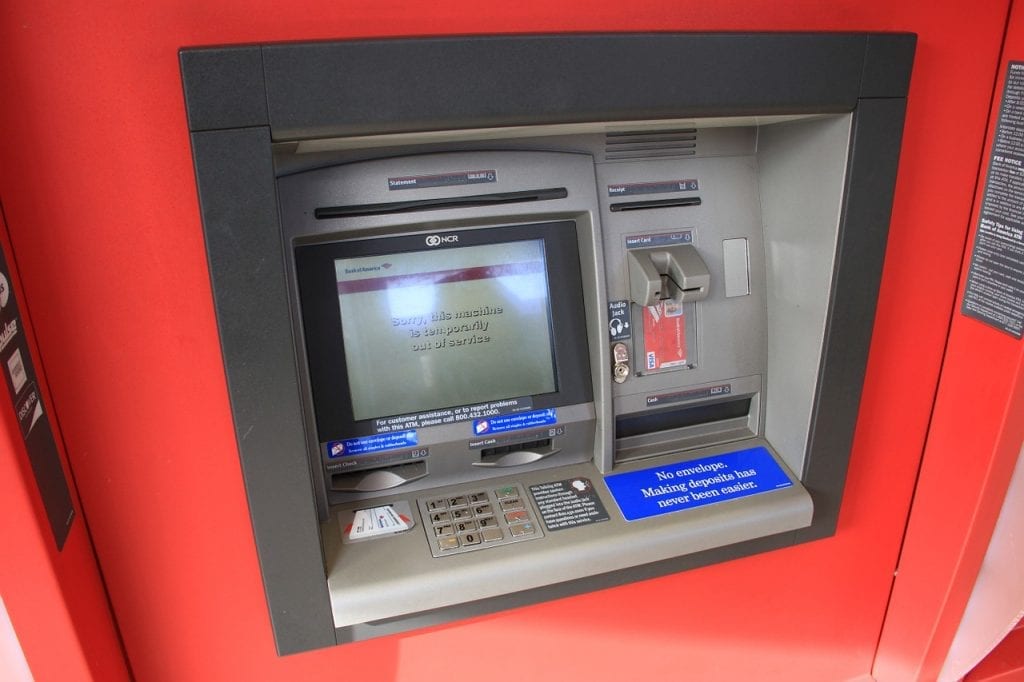
#15 Book Exchanges
On my first around the world trip, I spent almost a year in Australia. During this time, one of my favourite parts of visiting a small town in the middle of nowhere, was finding out where the ‘book exchange' was.
This was a place where you could sell your read books for say one dollar, and then buy a another one for two dollars. I loved this! I could spend ages browsing around a dusty bookshop, picking out things to read I would never have otherwise heard about. At one point, I even wanted to open my own book exchange.
Are book exchanges still around though? I guess they are in one form or another, but let's face it, it's not the greatest business model in the world! Too many things have changed.
Firstly, people can order books online now. Secondly, they can order them in digital format. When I stay at campsites during my cycling trips through Europe, there are always a few books in the campshop you can swap with another.
I haven't seen a genuine book exchange shop for many years now though.
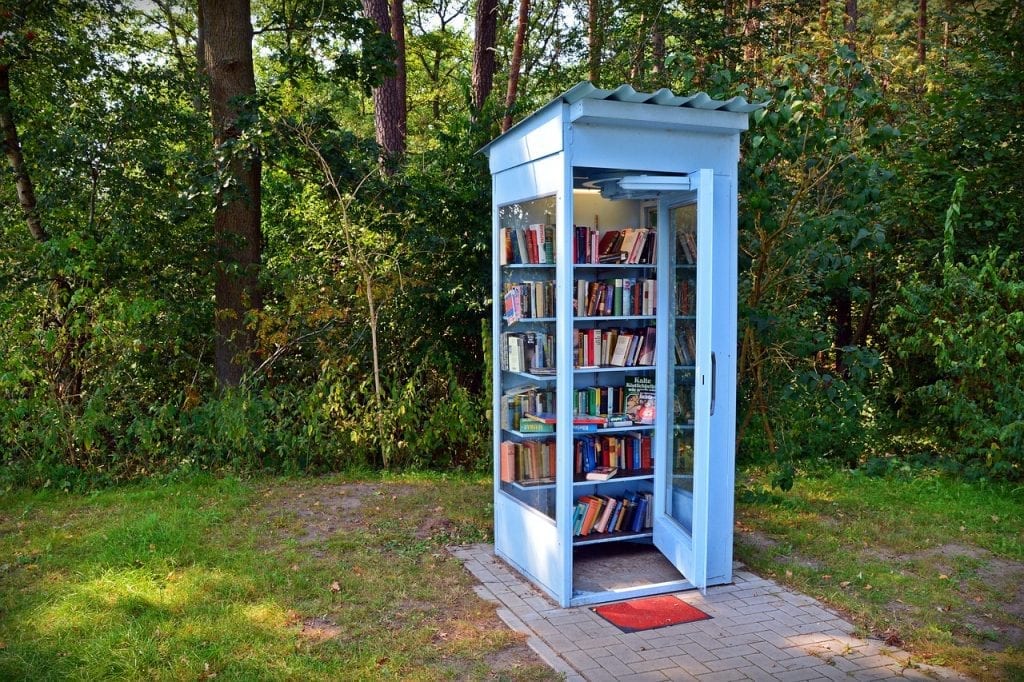
#16 Conversations
One of the things that has changed, and perhaps not for the best, is the nature of conversations, especially in hostels. Back in the day, part of the fun of travelling was meeting new people, and, you know, talking to them.
Now, everyone seems so wrapped up updating their Facebook status, and playing on their phones, they rarely make eye contact. This is most notable in hostels, and on long journeys on trains, buses, and planes.
When was the last time you struck up a conversation with a random stranger on a long train journey?
#17 Phone Calls
I remember the horrible cost of calling home on my first around the world trip! Even by sourcing phone cards, it still wasn't cheap. I wouldn't go as far as to say it was a dollar a minute phoning from Australia to the UK, but it wasn't far off!
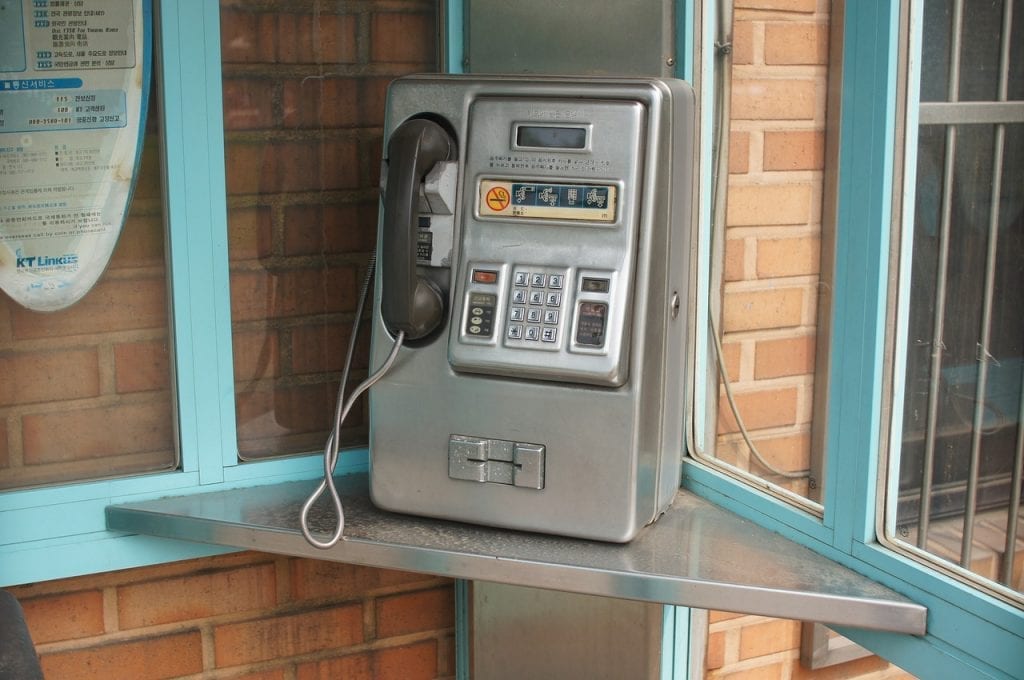
Fast forward 20 years, and I can now call anyone in the world for free, or if I do have to pay, it's cheap. I can call people over Facebook messenger, Google hangouts, Viber, or Skype.
Every year, I pay a small subscription fee to Skype which gives me unlimited calls to landlines back in the UK from anywhere in the world. Over the last few years, this has saved me hundreds of pounds!
But I don't think this is the only thing that has changed in regards to phone calls. I feel that over the last 20 years, calling people is not as popular as it once was.
Maybe it's just me (probably), but texting or messaging people seems to be a more common way of keeping in touch. What do you think?
#18 Watching Movies
When I first started travelling, I didn't even think about taking any movies with me to watch. It was about travel and adventure, after all! I was travelling to experience new cultures, and see the world.
In addition, why would I want to carry a pile of VHS tapes with me?! Even when DVD became the most popular format, it was not practical.
As torrents became more widely available though, you could eventually download almost any film you wanted. Portable storage became cheaper and larger, and this meant that it was possible to travel with films stored on a USB stick, drive, laptop, or even phone.
In the last couple of years, even this has become redundant. Through online streaming sites, I now have access to more films than I can possibly watch in a lifetime. I still travel to experience new cultures- But now I watch a movie every now and again as well.
#19 Postcards
Do you remember going on your summer holidays, and sending back a postcard to your grandparents as a kid? Do you remember going on an around the world trip, and sending back a postcard to family and friends from every country you visited? I do!
The thing is, when was the last time you sent a postcard? I definitely haven't sent one in at least 7 years… possibly longer.
So, what do we do instead of send postcards? Let's ‘face' it, Facebook has changed the way we keep in touch with people. Why send a postcard, when you can take a selfie and post it on your wall?
In fact, what use is a postcard, when you can use Facebook Live and show people back home in real time where you are?
#20 Maps
And so, on to the last of my list of 20 ways that travel changed in the last 20 years. Maps. Now, to a certain extent, I believe that people still use maps.
I've got a map of the world at home I still like looking at, and I always pick up tourist maps in cities I am visiting whenever I see one. What has changed though, is navigation.

In the last five years, an increasing number of people are using their smartphones for navigation when they travel. Google maps is quite frankly incredible, and it is a great way to find your way around a new city.
It also works (more or less) for navigation when bicycle touring. In the next five years, when interactivity and offline access is massively improved, I think paper maps will start to become a thing of the past.
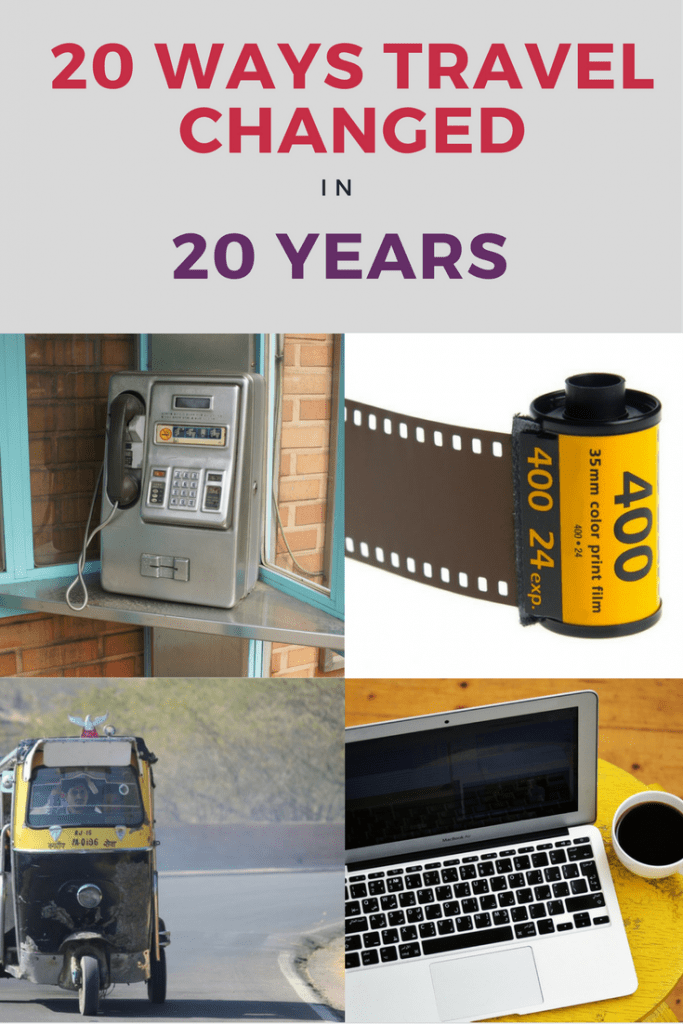
What do you think to these 20 ways travel changed in 20 years? Have you noticed any changes that I have not listed here? Are you of an age where you think you might have missed out on something because you were too young? I would love to hear from you, so please leave a comment below!
 Article Author: Dave Briggs
Article Author: Dave BriggsDave Briggs is a an author and travel blogger from the UK who has been creating travel guides at Dave's Travel Pages since 2005. Join him on social media for adventure inspiration, travel tips and insights from his journeys around the world:
Great post! I’ve only been traveling since 2011 and have noticed some of these changes. On my first trip I didn’t have a smartphone or laptop. I’ve spent hours searching for a guesthouse or hostel on a couple of occasions. Now I just fire up my GPS and walk straight there. Great improvement.
This was a great post, Dave! Yes, I remember all 20 things, now I’m showing my age. I started serious travel in 1998, so all this applies to me. I remember having to change currency before leaving and yes, I remember traveler’s cheques. I used to send postcards to myself and I still sometimes do, when I remember. I treasure each one of those postcards now.
Wow, so much has changed! And it seems like things change at a faster rate now, so I can’t imagine what the next 20 years will bring! But as much as I appreciate technological advances, there are still things that I like that are considered “old school” like paper maps and books.
A good read Dave. It’s mind boggling to think that so much has changed in a short period of time. I wish I had a crystal ball to predict all the changes that will happen in the next 10 years.
Great post! My podcast episode last week was about how the internet has changed travel and my guests covered quite a few of these points – but you have more! It’s really remarkable how much things have changed and it makes me feel old to sometimes pine for the old ways.
Great! The transformation has been slow but now one cannot imagine a world with those items what you have mentioned. I still have my SLR, also a TLR , as a relic of the past. Book exchange concept is new to me. In India we used to pay the cost of the second hand book on street shops, on returning a small “Reading Charges” would be deducted and balance refunded. Then it starts all over again.
Love this article – makes me nostalgic!
Budget airlines is the best thing that happened for travelling! Actually researching online is now a gem as well to optimize our times 🙂
Love this trip down memory lane! Love of fun comparisons. It is so interesting to think about how travel has changed over the years–I remember the first time I went overseas I had to use an internet cafe and a payphone with a calling card! And when I was little, I remember my mom calling tourism boards and asking them to send brochures of the things to do in the area so we could do research–times have definitely changed!!
It seems the internet is to blame for many of these things. Although I have to admit I still send postcards back home and I absolutely love getting postcards from friends!
An interesting concept for an article. I don’t really think about it, but travel really has changed over the years. It’s easier to do so many things and figure out the best information about a city. I do think that comes at a price, however. It seems like it’s harder to connect with the local culture now than it was in the past. The locals are more accustomed to having foreigners in their countries, and I think it’s harder to get those authentic experiences. That’s life though. There are always pluses and minuses.
You really brought up a lot of memories. the only thing I don’t recall was smoking on the plane. Are they crazy? Thank God that changed. To tell you the truth I prefer how things are now!
i think overall I prefer how things are now, but I really feel that some of the ‘social’ element of travel has disappeared over the years.
Yes, yes and yes! Twenty times! Great post. I have to own up to be old enough and having travelled for long enough for everything you have mentioned to ring true and evoke nostalgic memories! I have been known to bore younger travellers with tales of collecting mail from the Poste Restante and arranging calls to my parents using a BT Chargecard weeks in advance! Or at least I would if anyone sat in the guesthouse reception was actually looking for fellow travellers to talk to instead of staring at their phones!
#4, #6, #7, #16 and #17 particularly resonate – carrying 10 or so cassette tapes in my backpack and doing exactly as you did with my photos!
These days, when we’re finding our way to a guest house booked online, using an offline GPS map App or buying train tickets via Google translate, we often turn to each other and say “how did we manage 20 years ago?” But of course, we did! And perfectly well too!
As for postcards… I do still attempt to send them but often fail miserably – it feels like they will be old news by the time they actually arrive! Fascinated by how it used to be, Mark recently scanned some of the postcards he sent from Asia and Europe (slightly over) 20 years ago (thanks to his parents for keeping them all this time!) and published them in a couple of posts. His change in writing style is almost as fascinating as the pictures on the cards!
I have to admit to not being very regular with sending postcards, even when it made ‘more sense’ to send them! Actually, I had a couple of photos printed the other day for frames in the house.
I also looked back of writing styles, and it has changed massively over the years. maybe I will get around to putting some trip diaries from my old trips live on the blog some day!
Great list, number 16 conversations I’ve not thought about or noticed, but maybe that’s because 20 years ago I travelled alone but now I travel with my husband. We still love maps too and collect them from everywhere we go!
I still love maps, but due to the nature of bicycle touring, they aren’t super-practical, as I end up needing a new map every couple of days, which is very expensive! Google maps certainly saves me that additional expense.
Great summary of travel changes over the past 20 years. First thing I thought of, I admit, is the security changes and how it has made air travel so much less attractive than it used to be.
That’s a great addition! yep, airport security has changed certainly. Actually, in Europe on land crossings it is the opposite though. Now you can cross borders a lot more freely than at any previous time. On my recent cycling trip, i didn’t have to show my passport from Hungary all the way through to France!
This is a great article! To answer a couple of your questions, I had some photos printed only yesterday, and I always prefer to use a paper map if I can find one. I do send the occasional postcard too…